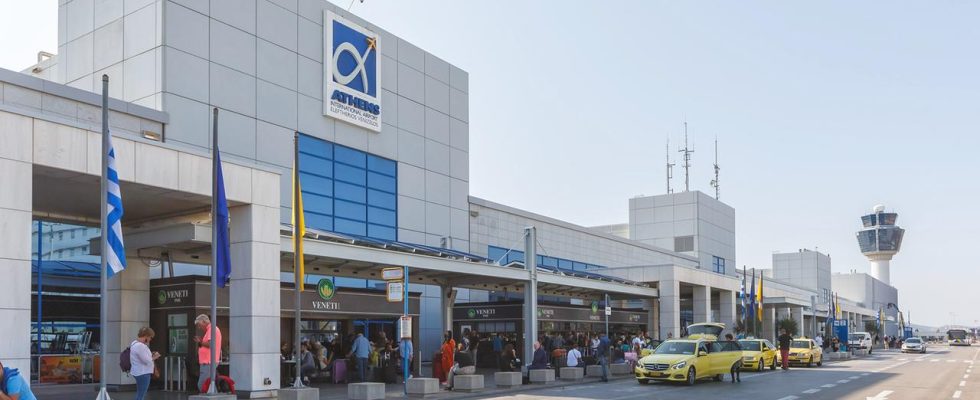During the financial crisis, Greece received aid loans worth almost 300 billion euros – money that also has to be repaid through privatization. However, the state has become cautious about some projects.
The “jewel” is located 30 kilometers east of Greece’s capital: Athens International Airport, the country’s most important airport. Ultra-modern, highly profitable, with around 28 million guests a year. So far, the state has held just over half of the shares. Now he is parting with a large part of it.
Some of the shares are now traded on the Athens Stock Exchange, the other part goes to AviAlliance, based in Düsseldorf, which previously held 40 percent of the airport and is now increasing it to half. In total, the Greek state is hoping for proceeds of more than one billion euros. It is the largest IPO in the country since the debt crisis around ten years ago.
Highways are also for sale
At that time, the country committed itself to privatizing and thus paying off its debts to international lenders. An example: Fraport AG took over the operation of 14 regional airports in Greece eight years ago. But in recent years, the privatizations have brought significantly less into the coffers than originally hoped.
That should change in 2024: Not only the Athens airport will be privatized, but also large parts of the motorway. The Athens motorway ring is expected to bring in a particularly large amount: more than three billion euros. The Greek conglomerate GEK Terna is likely to win the contract. Further privatizations concern a more than 600 kilometer long highway between Turkey and the port city of Igoumenitsa in northwest Greece, and the port of Lavrio near Athens.
Privatizations pay off debts
In total, the Greek asset development fund expects revenue of more than five billion euros in 2024. It would be a record. At around 160 percent of gross domestic product, the debt level in Greece is still the highest in the EU, but the trend is clearly declining.
In addition to the resurgent economy and especially the booming tourism, privatizations are playing their part in reducing debts. The climate for foreign investment is favorable: some of the major rating agencies have recently classified Greece as “worthy of investment” again.
Backtracking on strategically important ports
But Greece has become cautious about some privatizations – especially in the north of the country. Until recently, the ports of the cities of Kavala and Alexandroupoli were also for sale. Then the government backed out at the last moment. She now considers the locations to be geopolitically too important: firstly because of the war in Ukraine and their importance as military bases; secondly, as energy hubs for Greece’s plans to send “green” electricity to northern Europe in the future.
There was a particularly allergic reaction in Athens when a consortium, which included a Russian businessman with Greek roots, applied for the port of Alexandropouli. The same businessman who has had a say in operations at the port of Thessaloniki since 2017 and is considered a Putin confidant. The example also shows that Greece has to privatize. But which projects should go into private hands remains a sovereign decision by the country.
Pragmatic view of Cosco
This is also the case with the country’s largest and most important port, Piraeus near Athens. The Chinese state-owned company COSCO got involved there in 2009, even before the financial crisis. In 2016, COSCO increased its shares to two-thirds and has been setting the tone ever since. The then Prime Minister of Greece, Alexis Tsipras of the left-wing Syriza, had supported the deal.
In retrospect, was it a mistake to give Piraeus into Chinese hands? Greek politicians of various stripes point out that China’s economic success speaks for itself. Under leadership from the Far East, the port has become efficient and profitable and has grown significantly: Piraeus is now the fourth largest freight port in Europe – previously it was relatively insignificant in comparison.
Greek Prime Minister Kyriakos Mitsotakis has repeatedly pointed out that China’s investments in Piraeus are beneficial for both countries. Mitsotakis does not see any dependence on China. How would one react if China invaded Taiwan? No one would like to imagine this scenario.
“Government sacrifices future prospects”
When it comes to the sale of the state-owned shares in Athens Airport, not everyone is satisfied. The government is sacrificing the prospects for future generations just to have a relatively small immediate benefit, says MP Pavlos Geroulanos from the social democratic Pasok party.
In his opinion, the state would be more helped if it kept its shares. Especially now that things are going well again: never before have so many tourists come to Greece as last year.

